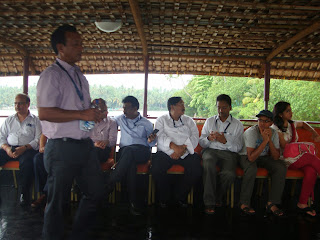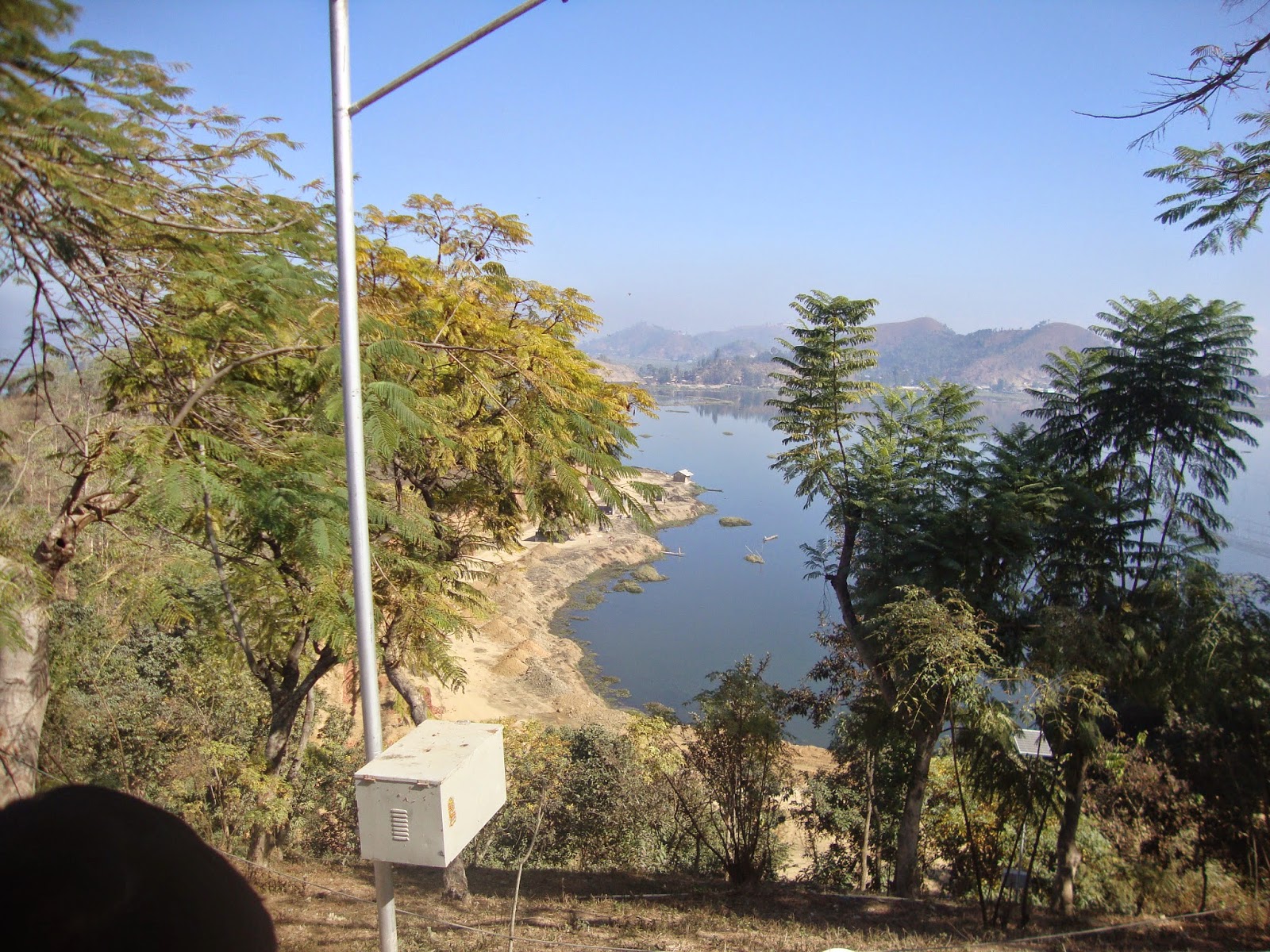A daughter of the village Umuofia was killed by the people of
the neighouring village. The village elders imposed penalty of a daughter and a
boy on the village for the murder. In the event of non compliance there would
be war. The village knew very well that they were no match for Umuofia if there
would be war. They gave a daughter and a boy. The daughter was given in
marriage to the person whose wife was killed. The boy was given to Okonkwo, a
warrior with titles and a respectable member of the community.
The boy Ikemefuna stayed with the family of Okonkwo. And he
was forgotten. The boy grew up and earned affection from Okonkwo’s son, wife
and from Okonkwo himself. He called him father and also almost forgot his own
parents. But after three years Umuofia decided to kill him, the Oracle of the
hills and the Caves pronounced it. He was taken to the caves. The voice of
Oracle could not be defied. The fact of his going to be killed was hidden from
him. He was told he would go to his village and returned to his parents. It was
difficult on his part and on the part of Okonkwo’s family to be separated. Now
he remembered his sister who was only three when he left her. He would be six
by now.
While going in the deep forest a man of the group leading him
hit him with his matchet. Ikemefuna looked back and said to Okonkwo, “My
father, they have killed me.” Okonkwo drew his matchet and cut him down. He
killed him lest he be known weak….
I was reading the novel Things Fall Apart of Chinua Achebe. I
had read this novel thirty-thirty five years back. When I went to Kerala I
picked up this book to read again while traveling and during my leisure. From here
I could not read further. The scene moved me. The innocence of the boy killed
and the helplessness of Okonkwo imprisoned in traditions and beliefs
disturbed me. I was lost in a trance.
I was reclining on the bed and reading the book. I heard a
noise, rather song from outside. I was put up in a hotel on the Kovalam beach.
In the night I slept hearing the sound of the waves dashing the coast. The
noise / song woke me up from reverie. I went outside and saw a group of
fishermen pulling the rope of the net spread over a big patch of the sea and
while pulling, they were singing a song in rhythm.
The sight of the fishermen catching fish with the fishnet
reminded me of the famous novel Cheemeen of Thakazhi S. Pillai. I had read it
also thirty-thirty five years back. I still remember the characters Pareekutti
and Karuthamma and the community which was also bound by taboos and traditions.
It is said a writer does not belong to a country or a region;
he is a citizen of the world. And so also, a lover of literature. Nigeria is
far away from Kerala coast, the distance being a few thousand miles and the
story is of a society that happened in nineteenth century, but it moved a
person sitting in Kerala in the second decade of twenty first century. Odisha
is also far away from Kerala, but the person still remembers the story of
Pareekutti. The story connects people and makes understand each other.
*******
There is a saying in Odisha, Laxmi and Saraswati do not live
together in a house. In general, tax people do not have a taste for literature.
For, they are worshipers of Laxmi. Since Laxmi resides in their houses,
Saraswati has no place. But Kerala is an exception. Monsur, an Assistant
Commissioner has a taste for literature and has respect for litterateurs. He
was glad to learn that I am a writer. So also Dr Ramalingam, an Associate
professor in Gulati Institue of Finance and Taxation (GIFT). He introduced me
to Dr C.S. Venkiteswaran. Venkiteswaran is a writer. We did not have time to
discuss literature, but we exchanged phone numbers and e mail IDs to be in
touch. This was my third visit to Kerala. I had earlier met Lalitha Madam,
Shyama madam, Thomas, Professors in GIFT and also Thygaraj Babu, now Deputy
Commissioner. I was glad to see them again.
*******
Commercial Tax Department, Kerala had arranged a boat cruise
for the delegates in Kollam. It was a nice experience. Officers/delegates from
different states speaking different languages sitting under the same roof of
the boat house, gossiping and enjoying the boat ride on the still backwater.
Kollam is seventy kms from Kovalam. There is a saying in Odia the cleanliness
of a village can be known from the ghat where the washerman washes the clothes.
The richness of the state can be known from the street side villages. Unlike
other states, one cannot find a village on the street side from Kovalam to
Kollam. One town begins soon after the end of the other and every where there
is greenery, soothing to the eyes and mind. On the way at one place the driver
of the car I was traveling slowed and threw some coins at a mosque. I knew
Murugan, the driver was a Hindu. I asked, “You are a Hindu, but why did you put
coins at a mosque?” He said, “A driver while driving on the road puts coins at
temple or mosque or at a church, if he comes across on the way. All are
temples for me where God resides. ” I remember Kerala is the first state in the world to have elected a
communist party to form the government. But the people have respect for all
religions.
(Murugan, the driver and Gopinath, the protocol officer)




.JPG)




